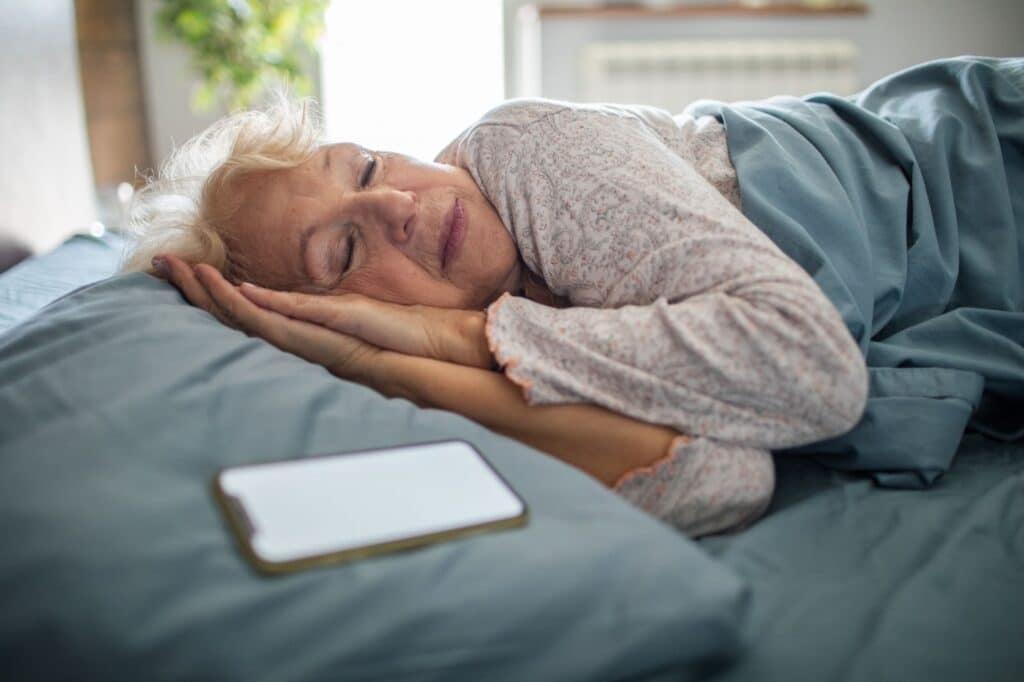Insomnia, or difficulty in falling asleep or staying asleep, is a common problem for seniors. It affects around 40% of older adults and can have a significant impact on their health and well-being. While it’s normal for sleep patterns to change as we age, chronic insomnia can be caused by several factors, including:
- Physical Health Issues
- Medications
- Changes in Sleep Patterns
- Psychological Factors
- Environmental Factors
Physical Health Issues
Many seniors suffer from chronic health conditions that can interfere with their ability to sleep. Chronic pain, arthritis, and heart disease are just a few examples of such issues. Moreover, as we age, our bodies produce less melatonin—the hormone responsible for regulating sleep-wake cycles—which can also contribute to difficulty sleeping.
Medications
Seniors often take multiple medications to manage their health conditions. Certain medications, such as antidepressants, beta-blockers, and steroids, have been known to interfere with sleep patterns and to cause insomnia. It’s important for seniors to discuss their medications with their doctor and mention any issues that they have with sleeping. This way, doctors can try to find a better balance of medications.
Changes in Sleep Patterns
Our sleep patterns change naturally with age. Older adults tend to experience a decrease in the amount of deep, restorative sleep they receive, and a corresponding increase in lighter, more easily disrupted sleep. This can lead to frequent awakenings during the night and difficulty falling back asleep.
Psychological Factors
Stress, anxiety, and depression are common among seniors, and can all contribute to insomnia. As people get older, they often face new challenges, such as health issues, financial concerns, and loss of loved ones. These stressors can make it difficult to relax and fall asleep at night.
Environmental Factors
The environment that we sleep in can also have an impact on how much—and how well—we sleep. Seniors may be more sensitive than younger adults to disruptions like noise, light, and temperature change. Additionally, certain bed partners or pets may disrupt their sleep patterns.
Managing Insomnia in Seniors

If you or a loved one is struggling with insomnia, there are steps that you can take to improve your quality and quantity of sleep.. Here are some tips for managing insomnia in seniors:
Create a Relaxing Bedtime Routine
Establishing a consistent bedtime routine can signal to your body that it is time for sleep. This can include activities such as taking a warm bath, reading or listening to calming music.
Limit Screen Time Before Bed
The blue light emitted from electronic devices has been shown to suppress the production of melatonin and disrupt sleep patterns. It is best to avoid using screens at least 30 minutes before bedtime.
Exercise Regularly
Physical activity can improve overall health and promote better sleep. Seniors should aim for at least 30 minutes of exercise each day, but be sure to avoid vigorous activity close to bedtime.
Consider Cognitive Behavioral Therapy
Cognitive behavioral therapy for insomnia (CBT-I) is a structured program that helps individuals identify and change unhelpful thoughts and behaviors related to sleep. This can be an effective treatment for seniors struggling with chronic insomnia.
Talk to Your Doctor
If you are experiencing chronic insomnia, then it’s important that you speak with your doctor. They may be able to prescribe medication or suggest other lifestyle changes or therapies that may help improve your sleep patterns.
It’s also important to note that some common medications, such as certain antidepressants and blood pressure medications, can also cause disruptions in people’s sleep patterns. Be sure to discuss any potential side effects with your doctor.
Make Your Bedroom Conducive to Sleep
Creating a comfortable sleep environment is crucial for improving the quality of sleep. Keep your room cool, dark, and free from distractions like noise or light from electronic devices. Invest in a comfortable mattress, and in pillows that support proper spinal alignment.
Consider Alternative Therapies
Some seniors may find relief for their insomnia through alternative therapies such as acupuncture, yoga, or meditation. These practices can help promote relaxation and calm the mind before bedtime.
Promoting Better Sleep for Seniors at The Legacy of South Plains
As we get older, it’s normal for our sleep patterns to change. However, chronic insomnia can negatively affect our overall health and well-being. By trying out the tips mentioned above, seniors can improve their sleep quality and get the rest they need to stay healthy and active.
At The Legacy of South Plains, we understand the importance of sleep for seniors. That’s why our community offers a variety of amenities and services to promote good sleep hygiene, such as comfortable accommodations, regular exercise programs, and relaxation activities.
Our experienced staff also works closely with residents to address any sleep difficulties they may be experiencing. Contact us today to learn more about our community and how we can help promote better sleep for seniors.
